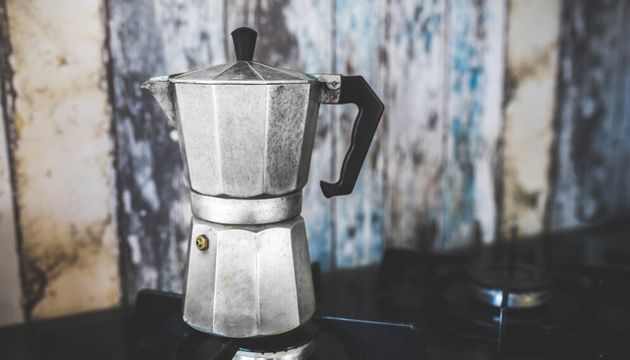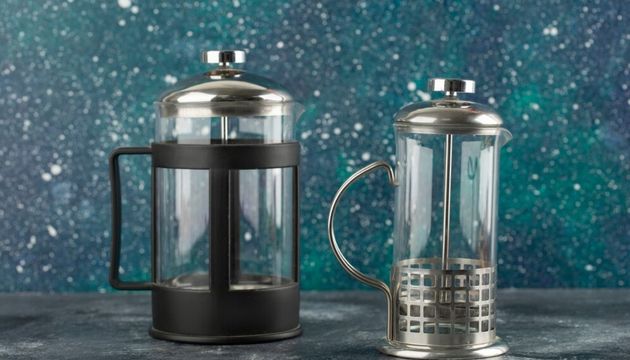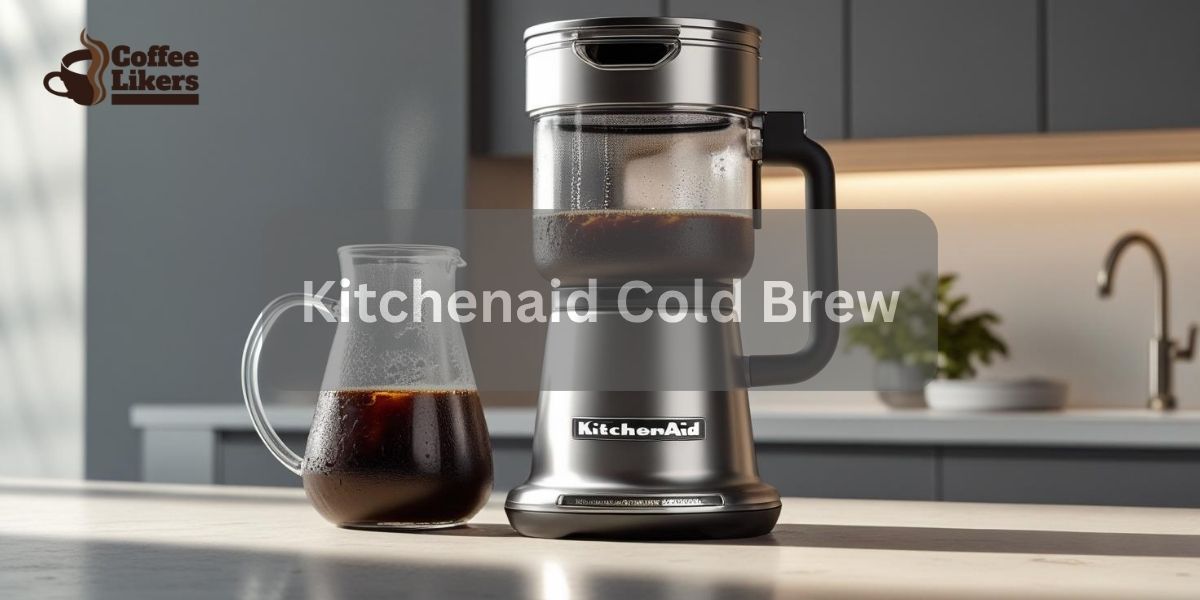Introduction
Stainless steel coffee makers are a popular choice among coffee enthusiasts for their durability and sleek appearance. But Are Stainless steel coffee makers safe? However, there are concerns about the safety of using these coffee makers, particularly regarding the leaching of harmful chemicals into the coffee.
With this in mind, the question of whether stainless steel coffee makers are safe for use has become a topic of discussion among coffee drinkers.
In this article, we will explore the safety of stainless steel coffee makers and provide information on the factors that contribute to the safety or risk associated with using these appliances.
About Non Toxic Coffee Maker For Coffee Lovers Tasting Coffee
Non-toxic coffee makers are a popular alternative to traditional coffee makers, as they are designed to minimize the risk of harmful chemicals leaching into the coffee.
These coffee makers are made with materials that are safe for food contact and do not contain any harmful substances such as lead, BPA, or phthalates.
One popular type of non-toxic coffee maker is a French press, which is made of glass or stainless steel. Glass French presses are a good choice because they do not contain any chemicals that could leach into the coffee, and they are easy to clean.
Stainless steel French presses are also a safe option, but it is important to choose one made of high-quality stainless steel that is safe for food contact.
Another option is a ceramic coffee maker, which is made of non-toxic ceramic material that is safe for food contact. Ceramic coffee makers are known for their durability and heat retention, and they come in a variety of styles and sizes.
For those who prefer an automatic coffee maker, there are also non-toxic options available. Some automatic coffee makers are made of stainless steel and are BPA-free, while others are made of materials such as plastic that are free of harmful chemicals.
Finally, non-toxic coffee makers are a safe and healthy alternative to traditional coffee makers. By choosing a coffee maker made of non-toxic materials, coffee drinkers can reduce the risk of harmful chemicals leaching into their coffee, and enjoy a healthy and delicious cup of coffee.
What is BPA Free Coffee Maker?
BPA-free coffee makers are coffee makers that are manufactured without the chemical Bisphenol A (BPA). BPA is a synthetic compound commonly used in the production of plastic materials, including some types of coffee makers.
However, BPA has been linked to a number of health problems, including hormone disruption, reproductive issues, and an increased risk of certain cancers.
As a result, many consumers are seeking BPA-free alternatives, including the best BPA free coffee makers. These coffee makers are typically made from materials that do not contain BPA, such as glass, ceramic, or high-quality stainless steel. Some BPA-free coffee makers are also labeled as “BPA-free” on the packaging or product description, making it easy for consumers to identify them.
Choosing a BPA-free coffee brewer can help reduce the risk of exposure to BPA and other harmful chemicals.
By selecting a coffee maker made from safe and non-toxic materials, coffee drinkers can enjoy a delicious and healthy cup of coffee, without having to worry about potential health risks associated with exposure to harmful chemicals.
What is The Healthiest Type of Coffee Maker?
The healthiest coffee maker is one that is made from safe and non-toxic materials and does not leach harmful chemicals into the coffee. Some of the most common types of healthy coffee makers include:
- French Press coffee makers: A French press is made from glass or stainless steel and does not contain harmful chemicals. Glass French presses are a great choice because they do not contain any chemicals that could leach into the coffee, and they are easy to clean. Stainless steel French presses are also a safe option, but it is important to choose one made of high-quality stainless steel that is safe for food contact.
- Ceramic Coffee Maker: Ceramic coffee makers are made of non-toxic ceramic material safe for food contact. Ceramic coffee makers are known for their durability and heat retention, and they come in a variety of styles and sizes.
- BPA Free plastic Coffee Maker: BPA-free coffee makers are coffee makers that are manufactured without the chemical Bisphenol A (BPA). BPA is a synthetic compound commonly used in the production of plastic materials, including some types of coffee makers. By choosing a BPA-free coffee maker, consumers can reduce the risk of exposure to BPA and other harmful chemicals.
- Pour-Over Coffee Maker: Pour-over coffee makers are typically made from glass, ceramic, or stainless steel and do not contain any harmful chemicals. They are a simple and effective way to make quality coffee, and they do not require any additional filters or paper.
Are stainless steel coffee makers safe? the healthiest type of coffee maker is one that is made from safe and non-toxic materials and does not leach harmful chemicals into the coffee.
By selecting a coffee maker that meets these criteria, coffee drinkers can enjoy a delicious and healthy cup of coffee without having to worry about potential health risks associated with exposure to harmful chemicals.

Are stainless steel coffee makers safe?
The best stainless steel coffee maker is a popular choice among coffee drinkers due to their durability and sleek appearance. However, there are concerns about the safety of using these coffee makers, particularly when it comes to the potential leaching of harmful chemicals into the coffee.
In general, stainless steel coffee makers are considered safe for use, as long as they are made of high-quality stainless steel that is safe for food contact. High-quality stainless steel does not contain any harmful substances, and it is resistant to corrosion, rust, and staining.
However, there are some stainless steel coffee makers on the market that may not be safe for use. These coffee makers may contain low-quality stainless steel that is not food safe, or they may be coated with a non-stick material that could potentially leach harmful chemicals into the coffee.
To ensure the safety of a stainless steel coffee maker, it is important to check the manufacturer’s specifications and make sure that the coffee maker is made of high-quality stainless steel that is safe for food contact. Additionally, it is important to look for a coffee maker that is BPA-free, as Bisphenol A (BPA) is a synthetic compound commonly used in the production of plastic materials, including some types of coffee makers.
In addition, the use of stainless steel coffee makers can be considered safe and high-quality, as long as they are made of high-quality stainless steel that is safe for food contact and free from harmful substances such as BPA.
By choosing a safe and high-quality stainless steel coffee maker, coffee drinkers can enjoy a delicious and healthy cup of coffee, free from the potential health risks associated with exposure to harmful chemicals.
This allows for a more relaxed and enjoyable coffee-drinking experience, with the peace of mind of knowing that the coffee maker is safe to use.
How to Use Stainless Steel Coffee Makers?
Using a stainless steel coffee maker is simple and straightforward. Here are the steps to make coffee using a stainless steel coffee maker:
- Fill the water tank: Fill the water tank with the desired amount of water. Make sure to not overfill the tank, as this can cause the coffee maker to overflow.
- Place the coffee grounds: Place the desired amount of ground coffee or pre-ground coffee in the filter basket. Make sure to use a high-quality coffee grind, as this will affect the flavor of the coffee hot.
- Turn on the coffee maker: Turn on the coffee maker by plugging it in and pressing the power button. The coffee maker will start heating the water and brewing the coffee.
- Wait for the brewing process to complete: Wait for the brewing process to complete. This typically takes between 3-5 minutes, depending on the size of the coffee maker and the amount of coffee being brewed.
- Pour the coffee: Once the brewing process is complete, pour the coffee into a mug or carafe.
- Clean the coffee maker: Clean the coffee maker after each use, to ensure that it remains in good condition and produces the best possible coffee. This can be done by wiping down the exterior with a damp cloth and washing the interior with soap and water.
using a stainless steel coffee maker is easy and straightforward. By following these steps, coffee drinkers can enjoy a delicious and healthy cup of coffee, made with a high-quality coffee maker that is safe for use.
Final Thoughts
In conclusion, stainless steel coffee makers can be a safe and high-quality option for coffee drinkers, as long as they are made of high-quality stainless steel that is safe for food contact and free from harmful substances such as Bisphenol A (BPA).
It is important to choose a stainless steel coffee maker from a reputable manufacturer and to check the manufacturer’s specifications using NLP techniques to ensure that the coffee maker meets safety standards.
By choosing a safe and high-quality stainless steel coffee maker, coffee drinkers can enjoy a delicious and healthy cup of coffee, free from the potential health risks associated with exposure to harmful chemicals and 4 cup coffee maker with stainless steel carafe is a good option.
In this article, we have described, are stainless steel coffee makers safe. Thanks for visiting our website https://coffeelikers.com.





Leave a Reply